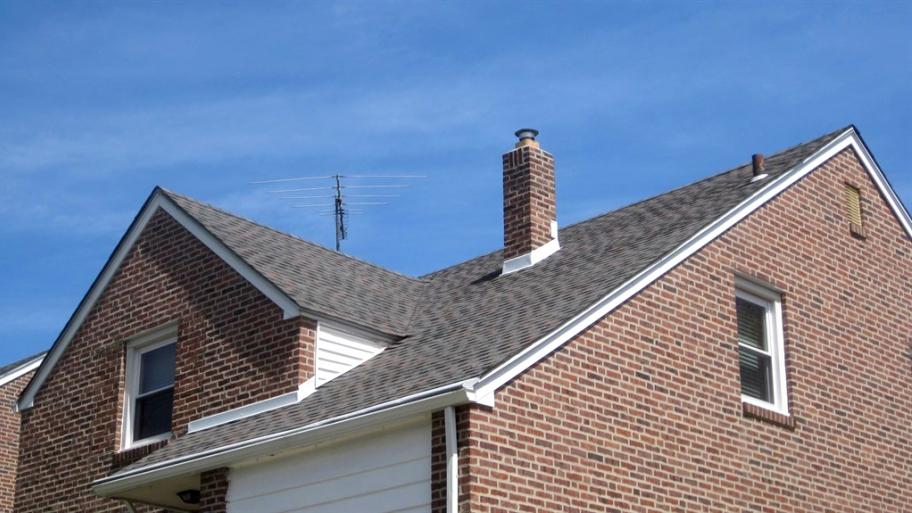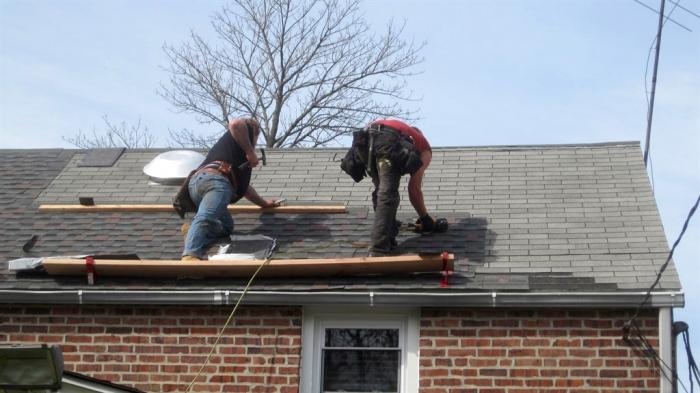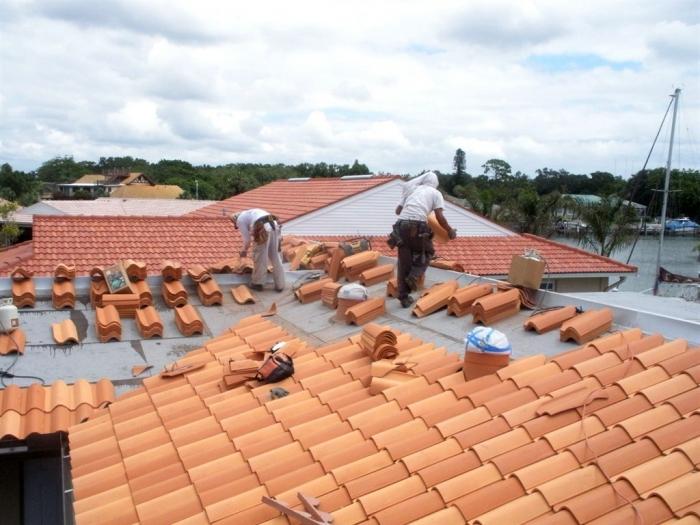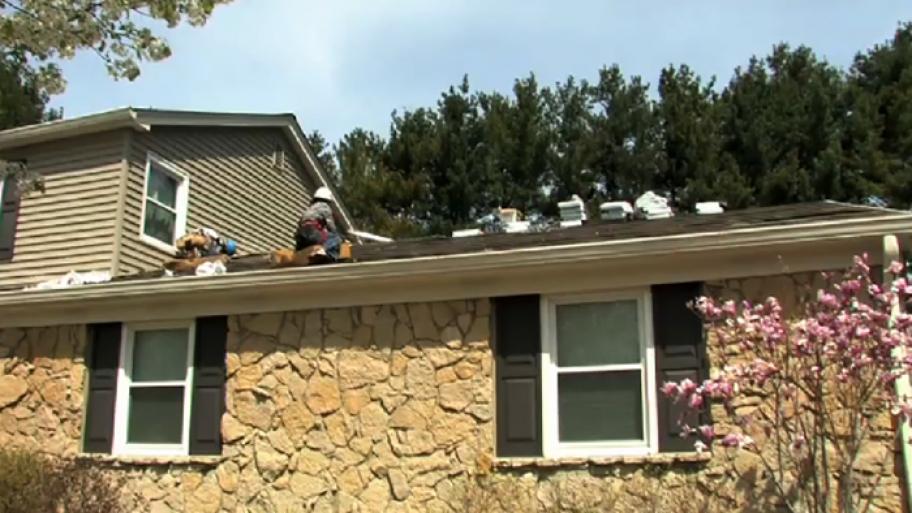Roofing Costs & Financing
Before reading about roofing costs. Please remember DFW Best Roofing will beat any bid or estimate by at least 5%. Also, remember we also offer financing if you feel you need it.
It important that any property owner that is going to have the roof replaced understand the cost behind it. Roofing contractors look at several variables to determine the price of a new roof, including its size, pitch, accessibility and cost of materials. Because of this, prices for a new roof can range drastically.
or
We can get back to your if you leave your information as soon as possible.
Before reading about roofing costs. Please remember DFW Best Roofing will beat any bid or estimate by at least 5%. Also, remember we also offer financing if you feel you need it.
It important that any property owner that is going to have the roof replaced understand the cost behind it. Roofing contractors look at several variables to determine the price of a new roof, including its size, pitch, accessibility and cost of materials. Because of this, prices for a new roof can range drastically.

We Will Beat Any Bid or Estimate by 5%
817 381 6855
To understand the roofing costs. Every roofing company divides the roofing cost into three types. The first is the material costs, The second is the labor costs. The third is the profit and overhead. In the service industry profits & overhead can range from 15% to 40%. Overhead includes costs of tools, workers compensation, insurance, office, etc.
Roof size affects costs
A roof’s size is the largest cost factor, Hood says.
Roofers charge per roofing square. A 10-by-10-foot (100 square feet) area is equal to one roofing square.
“For example, if we’re working on a roof that is 3,000 square feet, it’s broken down into 30 squares,” Allen says.
"The price of the material can be calculated by calling any roofing supply company. The first thing is to see how many squares or square feet your roof is. The second is to see what type of roofing material is being used. Is it 3 tab shingles, single ply TPO, class 4 shingles, Stone coated steel, etc. You can always call a local roofing supply company or us to learn about the pricing of the material that will be used on your roof.
Pitch of the roof impacts price
Another variable in pricing is the roof’s pitch, or slope. Some roofs have a high pitch, while others have a low pitch or no pitch at all — all factors which affect the cost of the roofing project.
Allen says a roof with a pitch of about a 7:12 ratio — the first number represents the height and the second the length — or higher isn’t walkable and may require extra safety harnesses and equipment. A 7:12 roof, for example, means that for every 12 inches it runs horizontally, the roof rises 7 inches vertically.
“A roof of 7:12 or greater is a steep roof, and we charge more money for that,” Allen says. “The work just goes a lot slower with a steep roof. You can’t stack stuff on the roof, and you have to wear harnesses.”
Hood says H & S Roofing also charges more for pitches above 7:12 because of the difficulty and because the company pays more in insurance costs.

Another factor is accessibility to the roof.
“Can we get a truck in there [close to the house]?” Allen says. “Can we back the truck against the house? If not, we’ll have to carry [the materials] all the way out to the trucks, and that can be more expensive.”
Tearing off a heavier roof can also increase labor costs.
Type of roofing material matters
According to Homewyse, which provides average costs for home improvement projects, the cost per square foot for a shingle roof is between $5.43 and $7.05. That equates to about $1,086 to $1,409 per 200 square feet (or for two squares).
Homewyse estimates the cost and labor for an asphalt roof for a 1,200-square-foot house in larger markets across the country ranges between $4,100 and $6,000.
Highly rated roofing contractors tell us that asphalt is the most affordable roofing option, followed by wood, tile, metal, and slate. Materials for a metal roof can cost up to $350 to $1,500 per 100 square feet. Angie's List members recently reported paying an average of $12,236 for a metal roof installation.
“You can pay twice as much for a metal roof compared to asphalt shingles, and as much as five times more for slate,” Hood says.
While asphalt shingles may last 20 or more years, tile, metal and slate may last 50 or more years, which can play a role in determining the type you want.

tile roof installation
What factors determine the cost of a roof?
Replacing a roof is one of the costliest upgrades a homeowner can make.
Roofing contractors look at several variables to determine the price of a new roof, including its size, pitch, accessibility and cost of materials. Because of this, prices for a new roof can range drastically.
In terms of a ballpark figure, though, Michael Allen, owner of Above It All Roofing in Irvine, California, says the average cost of a new roof runs as low as $5,000 for an asphalt shingle roof — the most commonly used roofing material in America — to $25,000 and up for higher-end roof types. The average price, he says, is $12,000.
Angie’s List members reported paying an average of $11,095 to tear off and replace an old roof in 2014. Prices can also vary greatly depending on where you live.
“We’ve done [asphalt shingle] roofs for the Housing Authority here in Charlotte for lower-income people for as low as $4,000,” says Dan Hood, sales and marketing manager for H & S Roofing Company in Charlotte, North Carolina. “And [now] we’re in the process of putting on a $150,000 slate roof.”
Roof size affects costs
A roof’s size is the largest cost factor, Hood says.
Roofers charge per roofing square. A 10-by-10-foot (100 square feet) area is equal to one roofing square.
“For example, if we’re working on a roof that is 3,000 square feet, it’s broken down into 30 squares,” Allen says.
Installation of new asphalt roof
Expect to pay more if your roof is higher than most or difficult to access. (Photo courtesy of Oliver Jeromin, of Holland, Michigan)
Pitch of the roof impacts price
Another variable in pricing is the roof’s pitch, or slope. Some roofs have a high pitch, while others have a low pitch or no pitch at all — all factors which affect the cost of the roofing project.
Allen says a roof with a pitch of about a 7:12 ratio — the first number represents the height and the second the length — or higher isn’t walkable and may require extra safety harnesses and equipment. A 7:12 roof, for example, means that for every 12 inches it runs horizontally, the roof rises 7 inches vertically.
“A roof of 7:12 or greater is a steep roof, and we charge more money for that,” Allen says. “The work just goes a lot slower with a steep roof. You can’t stack stuff on the roof, and you have to wear harnesses.”
Hood says H & S Roofing also charges more for pitches above 7:12 because of the difficulty and because the company pays more in insurance costs.
Another factor is accessibility to the roof.
“Can we get a truck in there [close to the house]?” Allen says. “Can we back the truck against the house? If not, we’ll have to carry [the materials] all the way out to the trucks, and that can be more expensive.”
Tearing off a heavier roof can also increase labor costs.
Type of roofing material matters
According to Homewyse, which provides average costs for home improvement projects, the cost per square foot for a shingle roof is between $5.43 and $7.05. That equates to about $1,086 to $1,409 per 200 square feet (or for two squares).
Homewyse estimates the cost and labor for an asphalt roof for a 1,200-square-foot house in larger markets across the country ranges between $4,100 and $6,000.
Highly rated roofing contractors tell us that asphalt is the most affordable roofing option, followed by wood, tile, metal, and slate. Materials for a metal roof can cost up to $350 to $1,500 per 100 square feet. Angie's List members recently reported paying an average of $12,236 for a metal roof installation.
“You can pay twice as much for a metal roof compared to asphalt shingles, and as much as five times more for slate,” Hood says.
While asphalt shingles may last 20 or more years, tile, metal and slate may last 50 or more years, which can play a role in determining the type you want.
Cost of a new roof
Other roofing cost factors
Water damage can also add to the final costs of a roofing project. Oftentimes, water damage isn't noticed until after the roofer has removed shingles and looked at the deck.
Significant water damage can also change the project from a roofing repair to a replacement.
Another factor that can affect the price is whether your home has chimneys or skylights. Having them can increase the cost of the project, as roofers must work around them.
The cost of repairing flashing around the chimney can range from $200 to $500, while repairing it around the skylight can average between $300 and $500.
Another possibility to keep costs down is shingling over an existing roof instead of replacing it, but this typically lowers its lifespan by 20 percent.
A roofing contractor explains why roofers' bids often differ and the most important cost details to consider.
After you call three to four local roofing companies, the real work of sorting through the confusion starts, mainly figuring out: Why are all the roof replacement estimates priced so differently?
There are many factors that affect the decision-making process for selecting your roofing contractor, such as reputation, license and insurance. However, the scope of work, roof materials used, bid details and cost to complete the roofing project are ultimately the most important factors.

How does a roofing company price a new roof? What are the variables to consider? Here are the top eight factors that will affect the price of your roof estimate:
1. Roof size
Roofers will take an accurate roof measurement based on square footage and then divide this number by 100, giving them what is called a roofing square. One roofing square equals 100 square feet. Most roofing materials are sold by the square, not the square foot.
A roofing contractor explains why roofers' bids often differ and the most important cost details to consider.
After you call three to four local roofing companies, the real work of sorting through the confusion starts, mainly figuring out: Why are all the roof replacement estimates priced so differently?
There are many factors that affect the decision-making process for selecting your roofing contractor, such as reputation, license and insurance. However, the scope of work, roof materials used, bid details and cost to complete the roofing project are ultimately the most important factors.
How does a roofing company price a new roof? What are the variables to consider? Here are the top eight factors that will affect the price of your roof estimate:
1. Roof size
Roofers will take an accurate roof measurement based on square footage and then divide this number by 100, giving them what is called a roofing square. One roofing square equals 100 square feet. Most roofing materials are sold by the square, not the square foot.
2. Roof pitch or slope
The roof’s pitch is an important factor in determining roof cost for two reasons. First, a very steep roof, typically recognized as anything that’s more than 6:12 pitch, is generally considered not walkable and requires greater staging, safety and labor to complete the roof properly.
Second, depending on the type of roof being installed and the required fire rating, roof pitch determines the type of required underlayment system and thus plays a very important role in pricing a roofing job properly. For example, a composition shingle roof that is between 2:12 and 4:12 pitch requires two layers of underlayment installed, while a flat roof that is between a 1/2:12 and 2:12 pitch may require certain underlayments to achieve a Class A fire rating.
3. Type of roof being removed and number of layers
For the most part, roof tear-offs are determined by the amount of time it takes to remove — the labor — and the dump charges to dispose of the roofing material, which is typically determined by the weight of the material. The heavier the material or the more there is, the longer it takes to remove the old roof and the more it costs to dispose of properly.
4. Type of new roofing material
There are sizeable differences between types of roofing materials. The price of the roofing product being used plays a direct role in the aesthetic design, weight, durability and ultimate longevity of the new roofing system.
For sloped roofing products, asphalt composition shingles tend to be your entry level product, with dimensional lifetime shingle product options demanding an increased price. Concrete and clay tile tend to be more of a mid-range option with synthetic, wood shake, metal roofing and traditional slate being in the higher range roofing products. For flat roofs, pricing options tend to start with coatings, hot-mop built-up roofs, modified torches, TPO products and finally single-ply PVC systems.
5. Roofing system components installed
Most people think of their new roof simply as the new tile or shingle which is being applied; however, there is much more to waterproofing your roof over the long-term. The type of underlayment and decking materials used, the ventilation and insulation installed and even the types of fasteners applied all carry a different level of performance, longevity, manufacturing cost, and thus price.
6. Contractor's roof access
Access to the roof is a critical aspect in the overall pricing of the job. Difficult access means additional equipment and labor are necessary to tear off the roof, load the roofing materials, stage the roof and complete the roof system. Since there is a direct correlation of labor and equipment costs to every roofing project, the easier the access, the less time and material are necessary to complete the job.
A roofing contractor explains why roofers' bids often differ and the most important cost details to consider.
After you call three to four local roofing companies, the real work of sorting through the confusion starts, mainly figuring out: Why are all the roof replacement estimates priced so differently?
There are many factors that affect the decision-making process for selecting your roofing contractor, such as reputation, license and insurance. However, the scope of work, roof materials used, bid details and cost to complete the roofing project are ultimately the most important factors.
How does a roofing company price a new roof? What are the variables to consider? Here are the top eight factors that will affect the price of your roof estimate:
1. Roof size
Roofers will take an accurate roof measurement based on square footage and then divide this number by 100, giving them what is called a roofing square. One roofing square equals 100 square feet. Most roofing materials are sold by the square, not the square foot.
2. Roof pitch or slope
The roof’s pitch is an important factor in determining roof cost for two reasons. First, a very steep roof, typically recognized as anything that’s more than 6:12 pitch, is generally considered not walkable and requires greater staging, safety and labor to complete the roof properly.
Second, depending on the type of roof being installed and the required fire rating, roof pitch determines the type of required underlayment system and thus plays a very important role in pricing a roofing job properly. For example, a composition shingle roof that is between 2:12 and 4:12 pitch requires two layers of underlayment installed, while a flat roof that is between a 1/2:12 and 2:12 pitch may require certain underlayments to achieve a Class A fire rating.
3. Type of roof being removed and number of layers
For the most part, roof tear-offs are determined by the amount of time it takes to remove — the labor — and the dump charges to dispose of the roofing material, which is typically determined by the weight of the material. The heavier the material or the more there is, the longer it takes to remove the old roof and the more it costs to dispose of properly.
asphalt shingle install layers
The number of roof layers and the type of roofing material play into the cost of a new roof. (Photo courtesy of Angie's List member Stephen K. of Secane, Pennsylvania)
4. Type of new roofing material
There are sizeable differences between types of roofing materials. The price of the roofing product being used plays a direct role in the aesthetic design, weight, durability and ultimate longevity of the new roofing system.
For sloped roofing products, asphalt composition shingles tend to be your entry level product, with dimensional lifetime shingle product options demanding an increased price. Concrete and clay tile tend to be more of a mid-range option with synthetic, wood shake, metal roofing and traditional slate being in the higher range roofing products. For flat roofs, pricing options tend to start with coatings, hot-mop built-up roofs, modified torches, TPO products and finally single-ply PVC systems.
5. Roofing system components installed
Most people think of their new roof simply as the new tile or shingle which is being applied; however, there is much more to waterproofing your roof over the long-term. The type of underlayment and decking materials used, the ventilation and insulation installed and even the types of fasteners applied all carry a different level of performance, longevity, manufacturing cost, and thus price.
6. Contractor's roof access
Access to the roof is a critical aspect in the overall pricing of the job. Difficult access means additional equipment and labor are necessary to tear off the roof, load the roofing materials, stage the roof and complete the roof system. Since there is a direct correlation of labor and equipment costs to every roofing project, the easier the access, the less time and material are necessary to complete the job.
Tile roofing install
Tile roofing materials weigh more than asphalt shingles so they require more labor and initial cost; however, tile roofs last a long time when done right. (Photo courtesy of Angie's List member Wally B. of St. Petersburg, Florida)
7. Type of roof warranty
There is a significant difference between a standard roofing warranty, where the roofing contractor is backing the labor and workmanship of the project, versus an extended or no-dollar-limit (NDL) warranty backed by the manufacturer themselves. A manufacturer’s warranty typically requires additional steps, materials and inspections along with a fee that is charged by the manufacturer to back and support the roofing contractor's labor and workmanship.
A standard roofing warranty typically does not require the extra steps; however, you pay for what you get and should consider this difference when looking at bid comparisons. Manufacturer-warranted roof replacements typically feature higher quality workmanship, since they bring an added set of eyes on the inspection and ultimately more security and peace of mind to the consumer.
8. Additional roof details
Finally, there are finish details and prep details that absolutely affect the cost of the roofing job. For instance, the type and quality of the lumber being used for fascia and rafters, along with the finishing sealants and counter-flashing details all play a critical role in not only the look of your finished roof, but the cost you will pay.
Labor costs depend on the skill level of the job. The average costs for shingle roofs run from $55 to $75/square depending on the slope, the average labor costs on a metal roofing job can cost around $150/square. The point is the more the skill the more the cost. If the roof is higher and / or steeper, the risk is higher, so the risk also affects the cost.
It is important that a roofing company pays its crew members fairly otherwise the work on the roofs will be sub-par. It's also important that a roofing company makes some profits. If you are dealing with people that are not running a successful business, then you risking your investment.
How roofers charge
While it's possible to replace your own roof, it's not always a good idea — without the right tools and enough experience, there's a high likelihood you'll make a mistake, which could reduce the lifespan of your roof and endanger the integrity of your home.
A standard 2,200- to 2,600-square-foot roof replacement will cost DIY homeowners between $2,000 and $6,000; professionals will charge $5,000 to $12,000. Nationally, Angie’s List members reported paying an average of $11,095 to tear off and replace an old roof in 2014.
Roofers charge for their work using what are known as "squares." One 10-by-10-foot patch of roof makes a square, meaning the average residential roof needs between 22 and 26 squares to be replaced.
First, roofers charge labor for removing your old roof. A one-story roof with a single shingle layer costs between $100 and $150 per square to remove; a double layer, $115 to $165; and triple layer, $125 to $175. If you have a particularly high roof or one that is extremely steep, you will pay more per square.
Roofers on top of roof tearing off old roof shingles
Know how roofers charge and how much roofing materials cost so you can negotiate the best deal.
Replacing your existing roof carries a significant cost, and it can't be put off once it becomes necessary. But the urgency of needing a new roof doesn't mean you should blindly hire the first roofing contractor you interview.
How roofers charge
While it's possible to replace your own roof, it's not always a good idea — without the right tools and enough experience, there's a high likelihood you'll make a mistake, which could reduce the lifespan of your roof and endanger the integrity of your home.
A standard 2,200- to 2,600-square-foot roof replacement will cost DIY homeowners between $2,000 and $6,000; professionals will charge $5,000 to $12,000. Nationally, Angie’s List members reported paying an average of $11,095 to tear off and replace an old roof in 2014.
Roofers charge for their work using what are known as "squares." One 10-by-10-foot patch of roof makes a square, meaning the average residential roof needs between 22 and 26 squares to be replaced.
First, roofers charge labor for removing your old roof. A one-story roof with a single shingle layer costs between $100 and $150 per square to remove; a double layer, $115 to $165; and triple layer, $125 to $175. If you have a particularly high roof or one that is extremely steep, you will pay more per square.
Roof installation costs
Next is installation. The most common type of roofing material is asphalt shingles, which cost between $120 and $140 per square. Slate and clay tiles, wooden shakes and metal roofs are also options but come with higher prices. For example, metal roofing typically costs between $1,000 and $1,500 per square.
It's possible to keep costs down by shingling over an existing roof, rather than replacing it, but this often lowers its lifespan by 20 percent. In addition to shingles, your roofer will supply an underlay — #15 felt is standard, but #30 felt, rubber, or synthetic membranes offer superior protection against water and ice damage. You'll also need to pay for flashing, trim, vent covers and gutters to complete the project
- Areas We Serve
- Cities We Serve
Areas We Serve
75002 (Allen)
75006 (Carrollton)
75007 (Carrollton)
75009 (Celina)
75010 (Carrollton)
75013 (Allen)
75019 (Coppell)
75022 (Flower Mound)
75023 (Plano)
75024 (Plano)
75025 (Plano)
75028 (Flower Mound)
75032 (Rockwall)
75034 (Frisco)
75035 (Frisco)
75038 (Irving)
75039 (Irving)
75040 (Garland)
75041 (Garland)
75042 (Garland)
75043 (Garland)
75044 (Garland)
75048 (Sachse)
75050 (Grand Prairie)
75051 (Grand Prairie)
75052 (Grand Prairie)
75054 (Grand Prairie)
75056 (The Colony)
75057 (Lewisville)
75060 (Irving)
75061 (Irving)
75062 (Irving)
75063 (Irving)
75065 (Lake Dallas)
75067 (Lewisville)
75068 (Little Elm)
75069 (McKinney)
75070 (McKinney)
75071 (McKinney)
75074 (Plano)
75075 (Plano)
75077 (Lewisville)
75078 (Prosper)
75080 (Richardson)
75081 (Richardson)
75082 (Richardson)
75087 (Rockwall)
75088 (Rowlett)
75089 (Rowlett)
75093 (Plano)
75094 (Plano)
75098 (Wylie)
75101 (Bardwell)
75104 (Cedar Hill)
75114 (Crandall)
75115 (Desoto)
75116 (Duncanville)
75119 (Ennis)
75125 (Ferris)
75126 (Forney)
75132 (Fate)
75134 (Lancaster)
75135 (Caddo Mills)
75137 (Duncanville)
75141 (Hutchins)
75142 (Kaufman)
75146 (Lancaster)
75147 (Mabank)
75149 (Mesquite)
75150 (Mesquite)
75152 (Palmer)
75154 (Red Oak)
75157 (Rosser)
75158 (Scurry)
75159 (Seagoville)
75160 (Terrell)
75161 (Terrell)
75164 (Josephine)
75165 (Waxahachie)
75166 (Lavon)
75167 (Waxahachie)
75172 (Wilmer)
75173 (Nevada)
75180 (Mesquite)
75181 (Mesquite)
75182 (Sunnyvale)
75189 (Royse City)
75201 (Dallas)
75202 (Dallas)
75204 (Dallas)
75205 (Dallas)
75206 (Dallas)
75207 (Dallas)
75208 (Dallas)
75209 (Dallas)
75210 (Dallas)
75211 (Dallas)
75212 (Dallas)
75214 (Dallas)
75215 (Dallas)
75216 (Dallas)
75217 (Dallas)
75218 (Dallas)
75219 (Dallas)
75220 (Dallas)
75223 (Dallas)
75224 (Dallas)
75225 (Dallas)
75226 (Dallas)
75227 (Dallas)
75228 (Dallas)
75229 (Dallas)
75230 (Dallas)
75231 (Dallas)
75232 (Dallas)
75233 (Dallas)
75234 (Dallas)
75235 (Dallas)
75236 (Dallas)
75237 (Dallas)
75238 (Dallas)
75240 (Dallas)
75241 (Dallas)
75243 (Dallas)
75244 (Dallas)
75246 (Dallas)
75247 (Dallas)
75248 (Dallas)
75249 (Dallas)
75251 (Dallas)
75252 (Dallas)
75253 (Dallas)
75254 (Dallas)
75270 (Dallas)
75287 (Dallas)
75390 (Dallas)
75401 (Greenville)
75402 (Greenville)
75407 (Princeton)
75409 (Anna)
75415 (Ben Franklin)
75422 (Campbell)
75423 (Celeste)
75424 (Blue Ridge)
75428 (Commerce)
75432 (Cooper)
75441 (Enloe)
75442 (Farmersville)
75448 (Klondike)
75450 (Lake Creek)
75453 (Lone Oak)
75454 (Melissa)
75469 (Pecan Gap)
75474 (Quinlan)
75496 (Wolfe City)
76001 (Arlington)
76002 (Arlington)
76006 (Arlington)
76008 (Aledo)
76009 (Alvarado)
76010 (Arlington)
76011 (Arlington)
76012 (Arlington)
76013 (Arlington)
76014 (Arlington)
76015 (Arlington)
76016 (Arlington)
76017 (Arlington)
76018 (Arlington)
76020 (Azle)
76021 (Bedford)
76022 (Bedford)
76023 (Boyd)
76028 (Burleson)
76031 (Cleburne)
76033 (Cleburne)
76034 (Colleyville)
76039 (Euless)
76040 (Euless)
76041 (Forreston)
76044 (Godley)
76050 (Grandview)
76051 (Grapevine)
76052 (Haslet)
76053 (Hurst)
76054 (Hurst)
76058 (Joshua)
76059 (Keene)
76060 (Kennedale)
76061 (Lillian)
76063 (Mansfield)
76064 (Maypearl)
76065 (Midlothian)
76066 (Millsap)
76071 (Newark)
76073 (Paradise)
76078 (Rhome)
76082 (Springtown)
76084 (Venus)
76085 (Weatherford)
76086 (Weatherford)
76087 (Weatherford)
76088 (Weatherford)
76092 (Southlake)
76093 (Rio Vista)
76102 (Fort Worth)
76103 (Fort Worth)
76104 (Fort Worth)
76105 (Fort Worth)
76106 (Fort Worth)
76107 (Fort Worth)
76108 (Fort Worth)
76109 (Fort Worth)
76110 (Fort Worth)
76111 (Fort Worth)
76112 (Fort Worth)
76114 (Fort Worth)
76115 (Fort Worth)
76116 (Fort Worth)
76117 (Haltom City)
76118 (Fort Worth)
76119 (Fort Worth)
76120 (Fort Worth)
76123 (Fort Worth)
76126 (Fort Worth)
76127 (Naval Air Station-Jrb)
76129 (Fort Worth)
76131 (Fort Worth)
76132 (Fort Worth)
76133 (Fort Worth)
76134 (Fort Worth)
76135 (Fort Worth)
76137 (Fort Worth)
76140 (Fort Worth)
76148 (Fort Worth)
76155 (Fort Worth)
76164 (Fort Worth)
76177 (Fort Worth)
76179 (Fort Worth)
76180 (North Richland Hills)
76182 (North Richland Hills)
76201 (Denton)
76205 (Denton)
76207 (Denton)
76208 (Denton)
76209 (Denton)
76210 (Denton)
76225 (Alvord)
76226 (Argyle)
76227 (Aubrey)
76234 (Decatur)
76244 (Keller)
76247 (Justin)
76248 (Keller)
76249 (Krum)
76258 (Pilot Point)
76259 (Ponder)
76262 (Roanoke)
76266 (Sanger)
76426 (Bridgeport)
76431 (Chico)
76487 (Poolville)
76490 (Whitt)
76623 (Avalon)
76651 (Italy)
76670 (Milford)
The best course of action is to call us at 817 381 6855.....
If you need repairs for your roof call us. Most roofing repairs can be done within $300.
If you need a new roof for any reason call us because we will beat any bid by at least 5%. 817 381 6855
If you have home insurance, especially with a 1% deductible, we can replace your roof at no cost to you. Give us a call if you have had hail or wind damage. If your roof is over 10 years old or you have a leak, we would be happy to do a free inspection. Sometimes we can not only get a roof at no cost, but we can upgrade your shingles from 3 tab to architectural shingles.
☎18173816855
SEE OUR PROMISE TO BEAT EVERY BID OR ESTIMATE

f.jpg)
